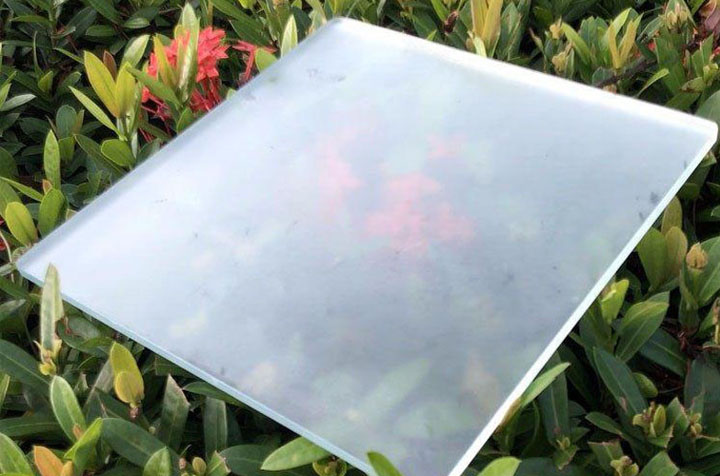The Artistic Appeal of Reflective Glass Texture
In the realm of contemporary design, the use of textures plays a pivotal role in creating visually striking and psychologically engaging environments. Among the myriad of textures available, reflective glass texture stands out as a captivating element that marries aesthetics with functionality. Reflective glass is not merely a material; it is a canvas that reflects the complexity of light, color, and the surrounding environment, offering a multidimensional experience that can transform any space.
Reflective glass texture is characterized by its ability to mirror light and images, creating an illusion of depth and space. This attribute is particularly beneficial in architectural design, where it can be utilized to enhance the brightness of a room, making it feel more open and airy. For instance, large glass panels in urban buildings often reflect the skyline and adjacent landscapes, allowing the structure to integrate seamlessly into its surroundings. This not only promotes a sense of harmony but also minimizes the visual impact of large concrete forms, thus contributing to a more aesthetic urban space.
Beyond architecture, reflective glass texture finds its place in interior design, where it can create striking focal points. Mirrors, glass furniture, and decorative accents made from reflective glass can add a touch of elegance and modernity to any room. In smaller spaces, such as apartments or compact offices, reflective surfaces can effectively enlarge the perceived square footage and improve the overall ambiance. The interplay of light dancing on reflective surfaces gives life to dull interiors, creating a dynamic environment that engages the senses.
reflective glass texture
Furthermore, the reflective quality of glass can be a powerful tool in color manipulation. Designers often use reflective glass surfaces to amplify color schemes, allowing light to bounce off various surfaces and blend hues in unexpected ways. This can lead to vibrant environments that stimulate creativity and promote well-being. For instance, a room filled with colorful furnishings can be enhanced by reflective glass elements, as the interplay of light and color creates a captivating atmosphere that invites exploration and interaction.
In addition to its aesthetic benefits, reflective glass texture also poses environmental advantages. By utilizing reflective or low-emissivity glass in building facades, architects can significantly reduce energy consumption. These materials reflect solar radiation, helping to maintain comfortable indoor temperatures and decreasing reliance on air conditioning systems. As environmental awareness continues to grow, such sustainable design choices become increasingly vital in the construction industry, marrying beauty with responsibility.
However, with the benefits of reflective glass texture come challenges. Its reflective nature can create excessive glare, which may detract from comfort in both public and private spaces. Designers must find a balance, ensuring that reflective surfaces enhance the environment without causing discomfort for inhabitants. Additionally, the maintenance of reflective surfaces can pose challenges, as they are more prone to showing fingerprints and dirt. Therefore, the selection of suitable materials and finishes becomes crucial in achieving an equilibrium between beauty and practicality.
In conclusion, reflective glass texture is a remarkable asset in contemporary design. Its versatility allows it to serve varied functions—from enhancing aesthetics to promoting sustainability—while actively engaging the senses. As design continues to evolve, the exploration of reflective glass will undoubtedly inspire innovative solutions that redefine our interaction with space and light. By embracing this texture, designers can create environments that are not only visually stunning but also functionally intuitive, harmonizing the principles of art and architecture in a meaningful way.
 Afrikaans
Afrikaans  Albanian
Albanian  Amharic
Amharic  Arabic
Arabic  Armenian
Armenian  Azerbaijani
Azerbaijani  Basque
Basque  Belarusian
Belarusian  Bengali
Bengali  Bosnian
Bosnian  Bulgarian
Bulgarian  Catalan
Catalan  Cebuano
Cebuano  Corsican
Corsican  Croatian
Croatian  Czech
Czech  Danish
Danish  Dutch
Dutch  English
English  Esperanto
Esperanto  Estonian
Estonian  Finnish
Finnish  French
French  Frisian
Frisian  Galician
Galician  Georgian
Georgian  German
German  Greek
Greek  Gujarati
Gujarati  Haitian Creole
Haitian Creole  hausa
hausa  hawaiian
hawaiian  Hebrew
Hebrew  Hindi
Hindi  Miao
Miao  Hungarian
Hungarian  Icelandic
Icelandic  igbo
igbo  Indonesian
Indonesian  irish
irish  Italian
Italian  Japanese
Japanese  Javanese
Javanese  Kannada
Kannada  kazakh
kazakh  Khmer
Khmer  Rwandese
Rwandese  Korean
Korean  Kurdish
Kurdish  Kyrgyz
Kyrgyz  Lao
Lao  Latin
Latin  Latvian
Latvian  Lithuanian
Lithuanian  Luxembourgish
Luxembourgish  Macedonian
Macedonian  Malgashi
Malgashi  Malay
Malay  Malayalam
Malayalam  Maltese
Maltese  Maori
Maori  Marathi
Marathi  Mongolian
Mongolian  Myanmar
Myanmar  Nepali
Nepali  Norwegian
Norwegian  Norwegian
Norwegian  Occitan
Occitan  Pashto
Pashto  Persian
Persian  Polish
Polish  Portuguese
Portuguese  Punjabi
Punjabi  Romanian
Romanian  Russian
Russian  Samoan
Samoan  Scottish Gaelic
Scottish Gaelic  Serbian
Serbian  Sesotho
Sesotho  Shona
Shona  Sindhi
Sindhi  Sinhala
Sinhala  Slovak
Slovak  Slovenian
Slovenian  Somali
Somali  Spanish
Spanish  Sundanese
Sundanese  Swahili
Swahili  Swedish
Swedish  Tagalog
Tagalog  Tajik
Tajik  Tamil
Tamil  Tatar
Tatar  Telugu
Telugu  Thai
Thai  Turkish
Turkish  Turkmen
Turkmen  Ukrainian
Ukrainian  Urdu
Urdu  Uighur
Uighur  Uzbek
Uzbek  Vietnamese
Vietnamese  Welsh
Welsh  Bantu
Bantu  Yiddish
Yiddish  Yoruba
Yoruba  Zulu
Zulu 

